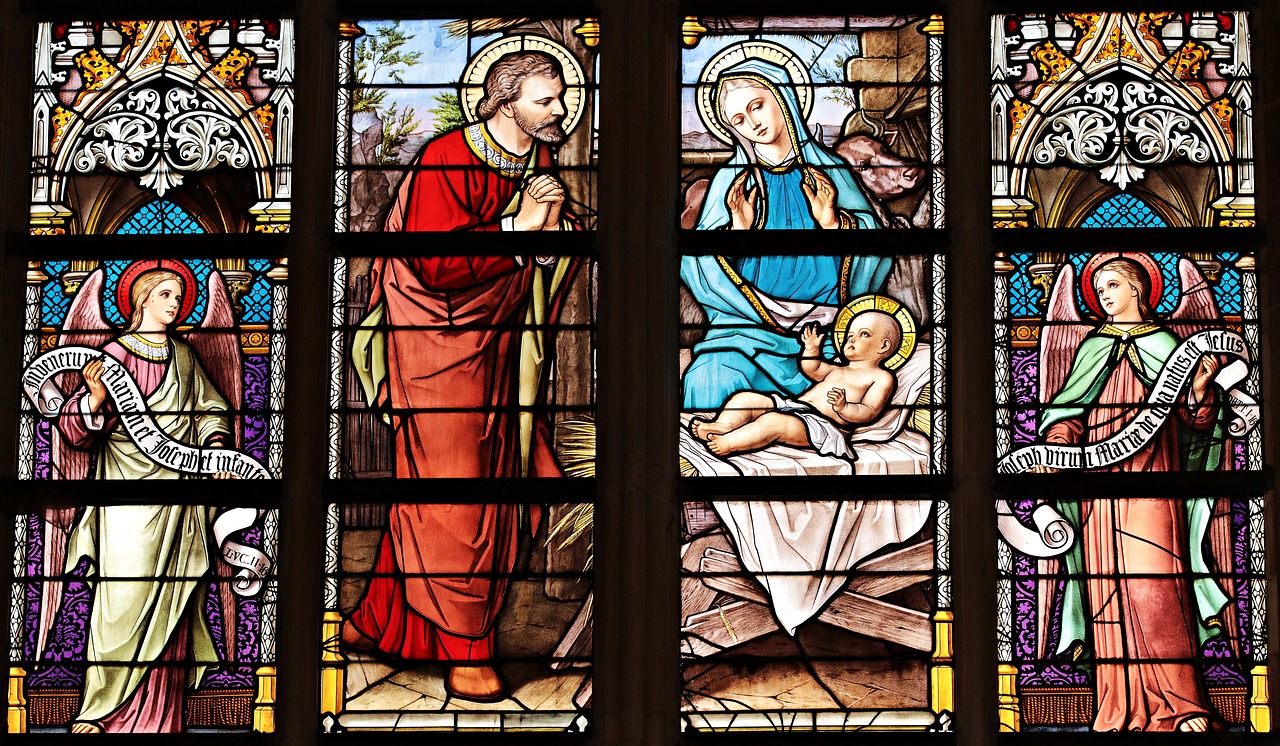Perhaps all identity is born from conflict. Heraclitus, the pre-Socratic philosopher, thought everything came out of conflict. Christian identity in its infancy also had to engage with and separate from strong religious and philosophical forces in Judaism, Greek thought and Gnosticism. Alexandria, a city founded in the universalist vision, became the earliest crucible of this process. Even at the time of Christ when Philo, the Jewish thinker, was reconciling Greek and Jewish minds and the Hebrew Bible was being translated into Greek, Alexandria was a place where dialogue not coercion was the hallmark of the quest for truth. Clement of Alexandria, born perhaps in Athens in 150 AD, gravitated towards this extraordinary city of ideas and there found his Christian mentor. Pantaenus who had visited and studied the philosophy of India, was the first head of the first Catechetical School in Christianity a position to which Clement succeeded. When this open season of intellectual ferment was shut down by the persecutions of the early third century Clement, a married man, was forced to pack his books and flee and died somewhere in exile about the year 215.
As the first mystical theologian he has left us an enduring model of a Christian mind so deeply coloured with the catholicity of the mind of Christ that he proclaimed that ‘nothing that is not against nature can be against Christ’. A Christian humanist who saw the Word of God doubly preparing for the Incarnation by means of Greek philosophy as well as the Hebrew Bible, Clement presented Christianity in a way that the educated world could respect. Imagine today how much better one feels at one’s core beliefs being represented by a Ratzinger or a Williams rather than by a single-issue fundamentalist. Clement’s catholic mind contrasts with his African contemporary Tertullian’s whose faith had a very different tone – “what has Athens to with Jerusalem?” he asked dismissively. Even as a ‘Christian Platonist’, though, Clement held to the fundamental doctrines of the Incarnation, the human-divine nature of Jesus and of Christ as universal saviour (‘everyone has need of Christ’) not as a dogmatic test of conventional orthodoxy but as an inspirational revelation. For Clement the Incarnation is a work both of ‘tuition and revelation’ and this continuous breakthrough into faith sustains the freshness and largeness of his theology just as it must have grounded and steered his prayer. In him we see that theology and experience are not meant to be separated.
Clement is the first theologian to speak of salvation as ‘theosis’ (divinisation). It is not a legal process. Sin for him is not an infraction of rules meriting punishment but the irrational result of ignorance. He uses a metaphor that Julian of Norwich would also employ to illustrate her theology of salvation – the Adam who fell into a ditch because he couldn’t jump over it and couldn’t get out. The second Adam came to help him, not to punish. It is in the imageless depth of one’s prayer that this theology of salvific mercy is born and grows. Salvation for Clement is not a reprieve but freedom, health, knowledge, life. The ‘medicine of the divine physician’, the Word who has eternally ‘held the helm of the universe’ and who, incarnate, is known to be the ‘all-healing physician of human infirmities and the holy charmer of the sick soul.’
Knowing this is faith. Clement therefore sees Christians as ‘true gnostics’. Although he defends Christian belief from a takeover bid by Gnosticism he does not deny how and where the Gnostic approach is true. Clement’s view of the disciple’s personal growth of this spiritual knowledge is expressed in his three great works. The Protrepticus (Exhortation) introduces the pagan mind to Christ as Logos with an emphasis on belief. “Everyone may choose to believe or disbelieve.” In the Paedogogus (Tutor) he focuses on the educational work of Christ and the purification of the disciple. Here we see the first illustration of what could be called an integral Christian ‘spirituality’ – faith as a holistic way of life with a socio-economic significance touching on how people dressed, ate, wore jewellery and scent, went to the baths, walked, spoke and made love in the marriage chamber. In Stromateis (Carpetbags) a more esoteric style addresses more advanced pupils in whom direct experiential knowledge of the truth has already begun to appear. These three stages of the spiritual journey will become normative for the whole tradition. Christ the Teacher ‘trains the Gnostic by mysteries, the believer by good works, the hard of heart by corrective discipline’. The neophyte obeys from fear, motivated by the desire for rewards, the believer forms good habits, the Gnostic obeys through love and has no desires because she has all she needs through the Holy Spirit and she is as like God as is humanly possible.
Irenaeus, Athanasius and later Augustine shared with Clement the key patristic belief that the import of the Incarnation of God is the divinisation of the human being. This brave assertion – one that became dangerous later in the tradition – attracted the Gnostic then just as it attracts the vaguer ‘New Agers’ today. The Christian meaning of the idea however is precise and rational. It links personal experience with the ever-ineffable mystery of God’s nature. Theosis is the work of love, not thought alone. We will see continually in our survey of the tradition that contemplation is the work of love. ‘The more someone loves God the more deeply he enters into God,’ Clement says and what makes this possible is what Aquinas would call ‘connaturality’. It is an idea of Plato that Clement developed in Christian faith through the verse in Genesis that says the human being is made ‘in the image and likeness of God.’ We can only know that which we are like. It is the nous (mind), the most inward part of the soul according to Plato that makes it possible to know God. But to translate this as ‘intellect’ today is misleading. It is much closer to that function of mind called ‘buddhi’ in Sanskrit or the ‘heart’ in the Scriptures. For Clement nous is the meaning of the human as “image of God” and it is the organ of prayer.
To be the ikon (image) of God is, for the mystical thinker, not a frozen state but a dynamic process. We are a becoming like, a being in process of assimilation to God. There is a tendency to abstraction in all this – the body doesn’t get much of a look in and contemplation might seem rather spectral. But Clement’s Christian anchor in Incarnation controls this. The ‘true gnostic’ is a fully involved ecclesial Christian. Good works flow from prayer and as a Christian contemplative he is ‘greater in the kingdom who shall do and teach. (because) all to him are friends.’
The combination of transcendence, expressed in theosis, and immanence, expressed in love, is infinity. In Clement perfection means we never become perfect and that ‘every end is a new beginning.’ The imageless nature of contemplation – what Origen, Clement’s successor, was to call ‘pure prayer’ is the experiential work of this theology in which we are continuously moving ‘through holiness into immensity’. Clement’s is the first great articulation of the apophatic dimension of knowing God to which everyone is summoned. ‘We may attain somehow to the conception of the Almighty, not knowing what He is but what He is not.’ The mature Christian, we learn from Clement at the beginning of our tradition, is theologically bilingual. She can say: where is God not? Nowhere. So, God is everywhere. This covers all bases and avoids the hubris that has led us in this age to the folly of scientism, believing only what we can see and measure.
Immense as has been the impress of Clement’s mystical intelligence on Christian thought and spirituality it is the depth and breadth of his encounter with Christ that makes him that rare combination, a loveable authority. For him Jesus ‘has a voice of many tones and varied methods in the salvation of men. His aim is to create true health in the soul’. Jesus as saviour has found out for all the ‘rational drugs which tend to quickness of perception and salvation.’ Behind the architecture of a great mind we feel the intimacy of one who is caught up in the wonderful beauty of love.
Laurence Freeman OSB







